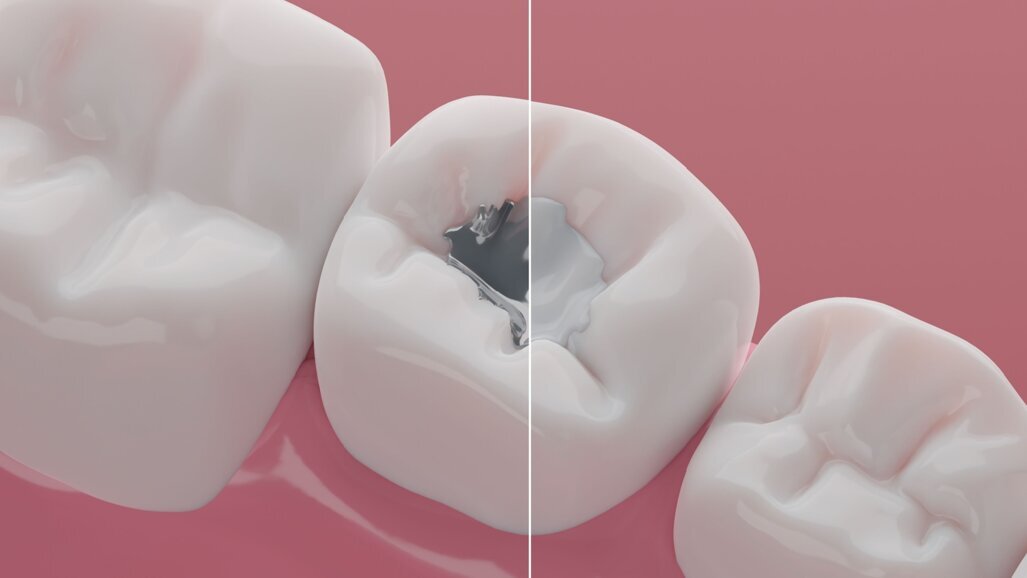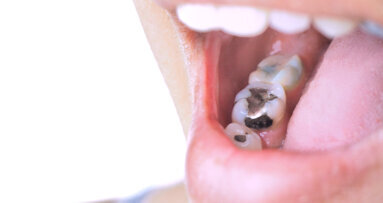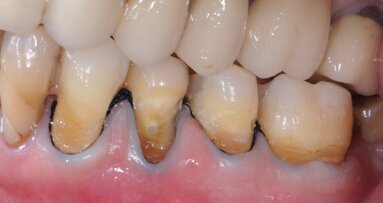BELFAST, Northern Ireland: Earlier this year, the European Parliament voted in favour of a total phase-out of dental amalgam from 1 January 2025. This decision led to serious concerns regarding dental care provision in the UK and especially in Northern Ireland. At the end of July, the European Commission extended the period of use of amalgam in Northern Ireland in order to give health services and dental practices more time for an orderly transition.
Even though the UK has left the EU, Northern Ireland remains subject to some EU rules as a result of the post-Brexit agreement, the Windsor Framework. Therefore, the amalgam ban would have applied in Northern Ireland.
For this reason, the Department of Health has secured a ten-year derogation specifically for Northern Ireland, allowing dentists to continue using amalgam until 31 December 2034. This date of extension will apply unless a different date is agreed upon by the global Minamata Convention on Mercury, to which the UK is a signatory.
“I am very pleased that this has been secured and that the phasing down of mercury can be taken forward in a much more planned way over the coming years,” Minister of Health Mike Nesbitt told the BBC.
BDA raised concerns about dental care provision in Northern Ireland
As reported by Dental Tribune International in January, the EU ban on amalgam led to concerns about supply chain issues in the UK. Amalgam is the material most commonly used for permanent fillings by the National Health Service (NHS), according to the British Dental Association (BDA). Since Northern Ireland has the most filled teeth proportionally, the country would have been the most affected UK nation. Although the BDA generally supports amalgam reduction, it has called the rapid phase-out of amalgam in dental practices unfeasible and unjustifiable.
A survey by BDA’s Northern Ireland branch in March revealed that an amalgam ban starting from 2025 would have a significant impact on dental practices. According to the survey, 88% of dentists reported that such a ban would lead them to reduce or end their NHS commitment altogether, 92% expected increased costs for NHS services and 91% of respondents indicated that higher-need patients would be affected.
In a press release, BDA Northern Ireland expressed its relief that these concerns have been addressed. “A ban on dental amalgam in 2025 could have spelled the end for NHS dentistry in Northern Ireland. We sounded the alarm and fought tooth and nail for a workable solution. This delay is a glimmer of hope for a service that’s on its knees and could not have shouldered any further financial pressure,” commented Dr Ciara Gallagher, chair of the BDA’s Northern Ireland Dental Practice Committee.
Fundamental reforms and measures needed
Even though the derogation provides more time for a seamless transition to amalgam-free dentistry, health bodies have stressed the need for reform and thorough investment into dental care by the government. “Any progress will require reform, investment and concerted action on deep oral health inequalities. When the plug is finally pulled on amalgam, Northern Ireland will need to have a healthier population and a more sustainable service. Otherwise this ten-year derogation is a mere stay of execution for NHS dentistry,” said Dr Gallagher.
Topics:
Tags:
STRASBOURG, France: Amalgam is the restorative material of choice for many dentists. It is the gold standard of dental care. However, its popularity has ...
GENEVA, Switzerland: To date, more than 100 countries have ratified the Minamata Convention on Mercury, a global treaty to curb the effects of mercury on ...
BELFAST, UK: The phase-out of dental amalgam is currently taking place in a number of countries owing, in part, to its deleterious effects on the natural ...
For about a century, dental amalgam has been the standard restorative material for posterior carious lesions. Given its ease of placement, its moisture ...
Live webinar
Tue. 24 February 2026
6:00 pm UTC (London)
Prof. Dr. Markus B. Hürzeler
Live webinar
Tue. 24 February 2026
8:00 pm UTC (London)
Prof. Dr. Marcel A. Wainwright DDS, PhD
Live webinar
Wed. 25 February 2026
4:00 pm UTC (London)
Prof. Dr. Daniel Edelhoff
Live webinar
Wed. 25 February 2026
6:00 pm UTC (London)
Live webinar
Thu. 26 February 2026
1:00 am UTC (London)
Live webinar
Tue. 3 March 2026
4:00 pm UTC (London)
Dr. Omar Lugo Cirujano Maxilofacial
Live webinar
Wed. 4 March 2026
1:00 am UTC (London)
Dr. Vasiliki Maseli DDS, MS, EdM



 Austria / Österreich
Austria / Österreich
 Bosnia and Herzegovina / Босна и Херцеговина
Bosnia and Herzegovina / Босна и Херцеговина
 Bulgaria / България
Bulgaria / България
 Croatia / Hrvatska
Croatia / Hrvatska
 Czech Republic & Slovakia / Česká republika & Slovensko
Czech Republic & Slovakia / Česká republika & Slovensko
 France / France
France / France
 Germany / Deutschland
Germany / Deutschland
 Greece / ΕΛΛΑΔΑ
Greece / ΕΛΛΑΔΑ
 Hungary / Hungary
Hungary / Hungary
 Italy / Italia
Italy / Italia
 Netherlands / Nederland
Netherlands / Nederland
 Nordic / Nordic
Nordic / Nordic
 Poland / Polska
Poland / Polska
 Portugal / Portugal
Portugal / Portugal
 Romania & Moldova / România & Moldova
Romania & Moldova / România & Moldova
 Slovenia / Slovenija
Slovenia / Slovenija
 Serbia & Montenegro / Србија и Црна Гора
Serbia & Montenegro / Србија и Црна Гора
 Spain / España
Spain / España
 Switzerland / Schweiz
Switzerland / Schweiz
 Turkey / Türkiye
Turkey / Türkiye
 UK & Ireland / UK & Ireland
UK & Ireland / UK & Ireland
 International / International
International / International
 Brazil / Brasil
Brazil / Brasil
 Canada / Canada
Canada / Canada
 Latin America / Latinoamérica
Latin America / Latinoamérica
 USA / USA
USA / USA
 China / 中国
China / 中国
 India / भारत गणराज्य
India / भारत गणराज्य
 Pakistan / Pākistān
Pakistan / Pākistān
 Vietnam / Việt Nam
Vietnam / Việt Nam
 ASEAN / ASEAN
ASEAN / ASEAN
 Israel / מְדִינַת יִשְׂרָאֵל
Israel / מְדִינַת יִשְׂרָאֵל
 Algeria, Morocco & Tunisia / الجزائر والمغرب وتونس
Algeria, Morocco & Tunisia / الجزائر والمغرب وتونس
 Middle East / Middle East
Middle East / Middle East












































To post a reply please login or register